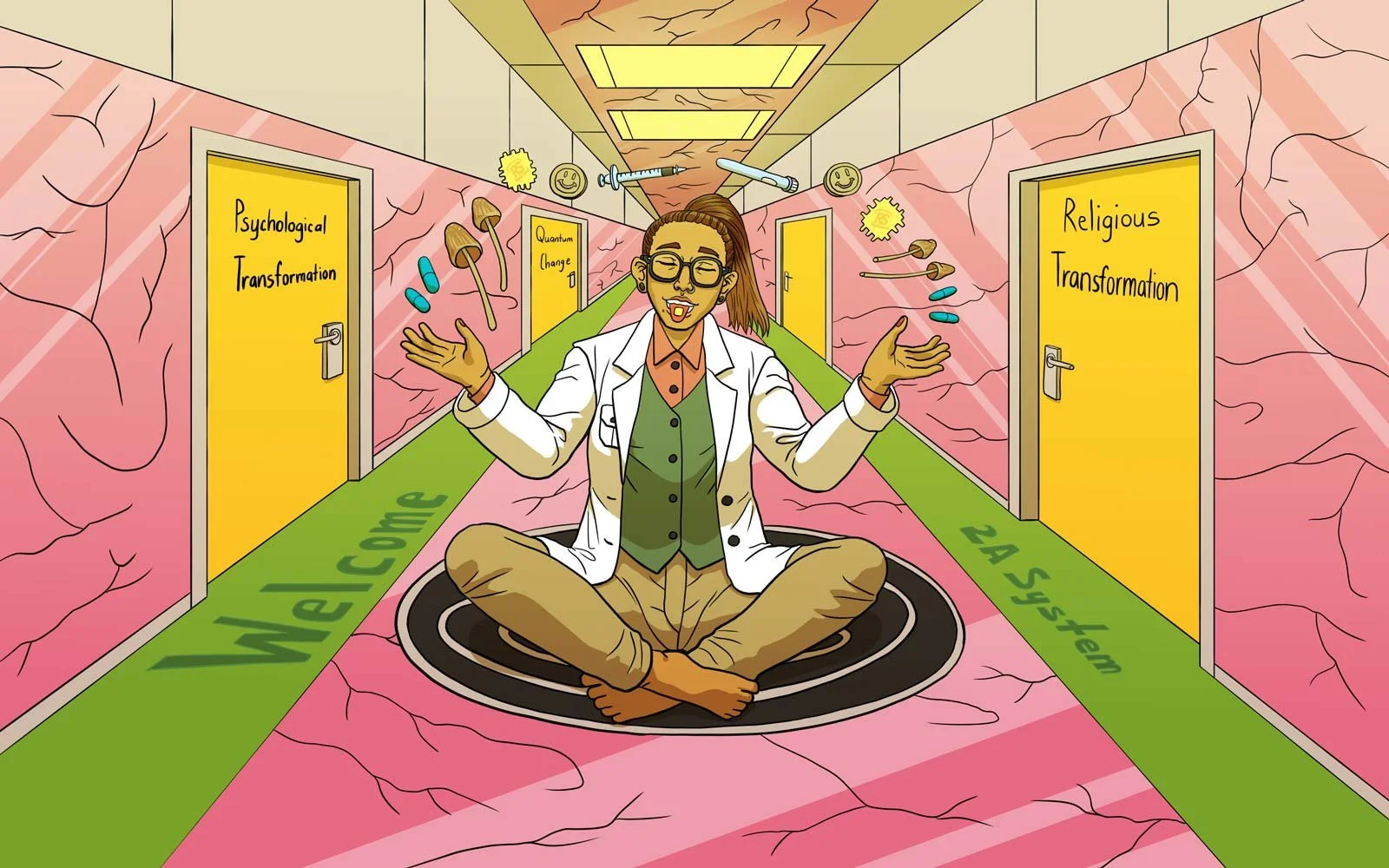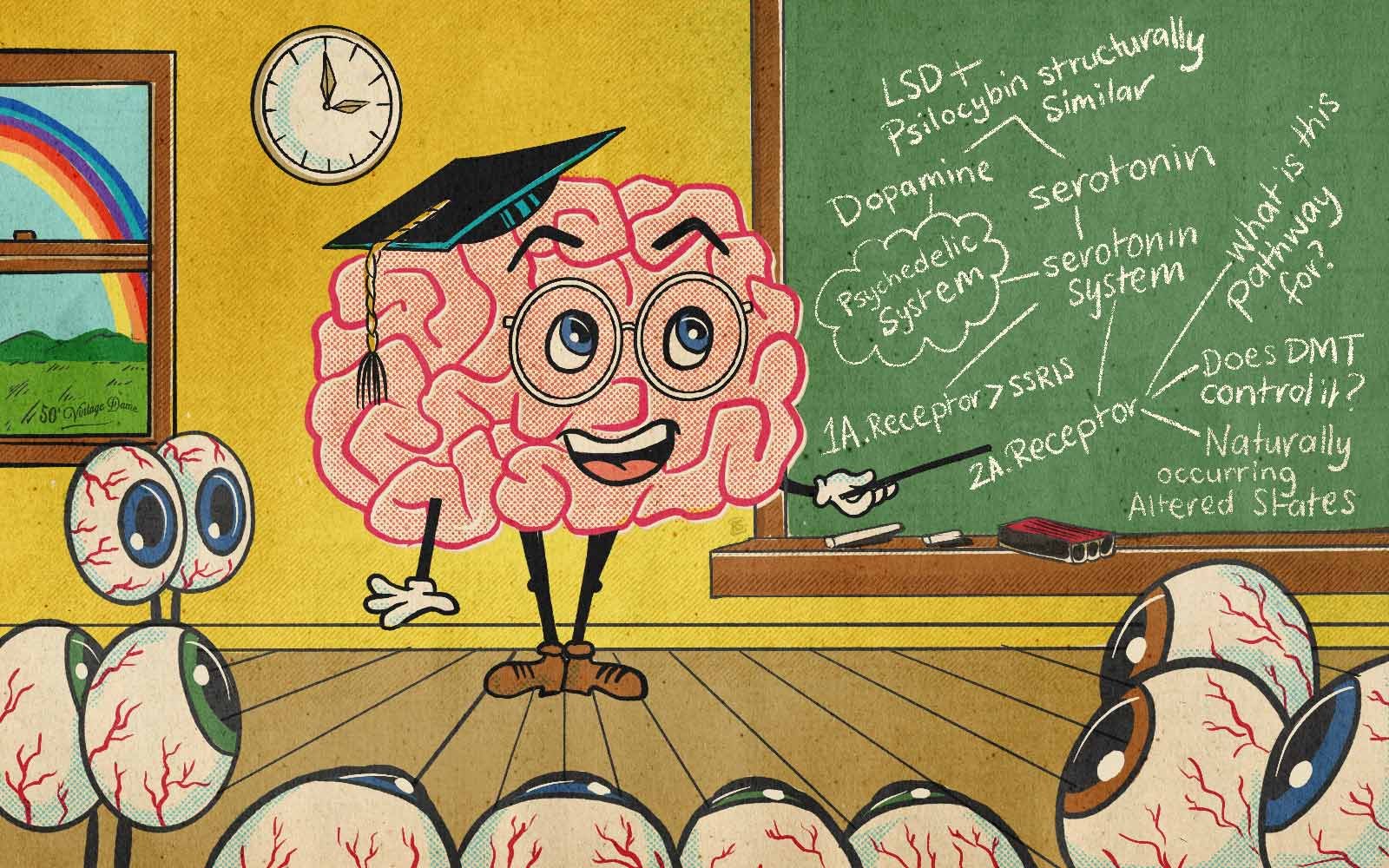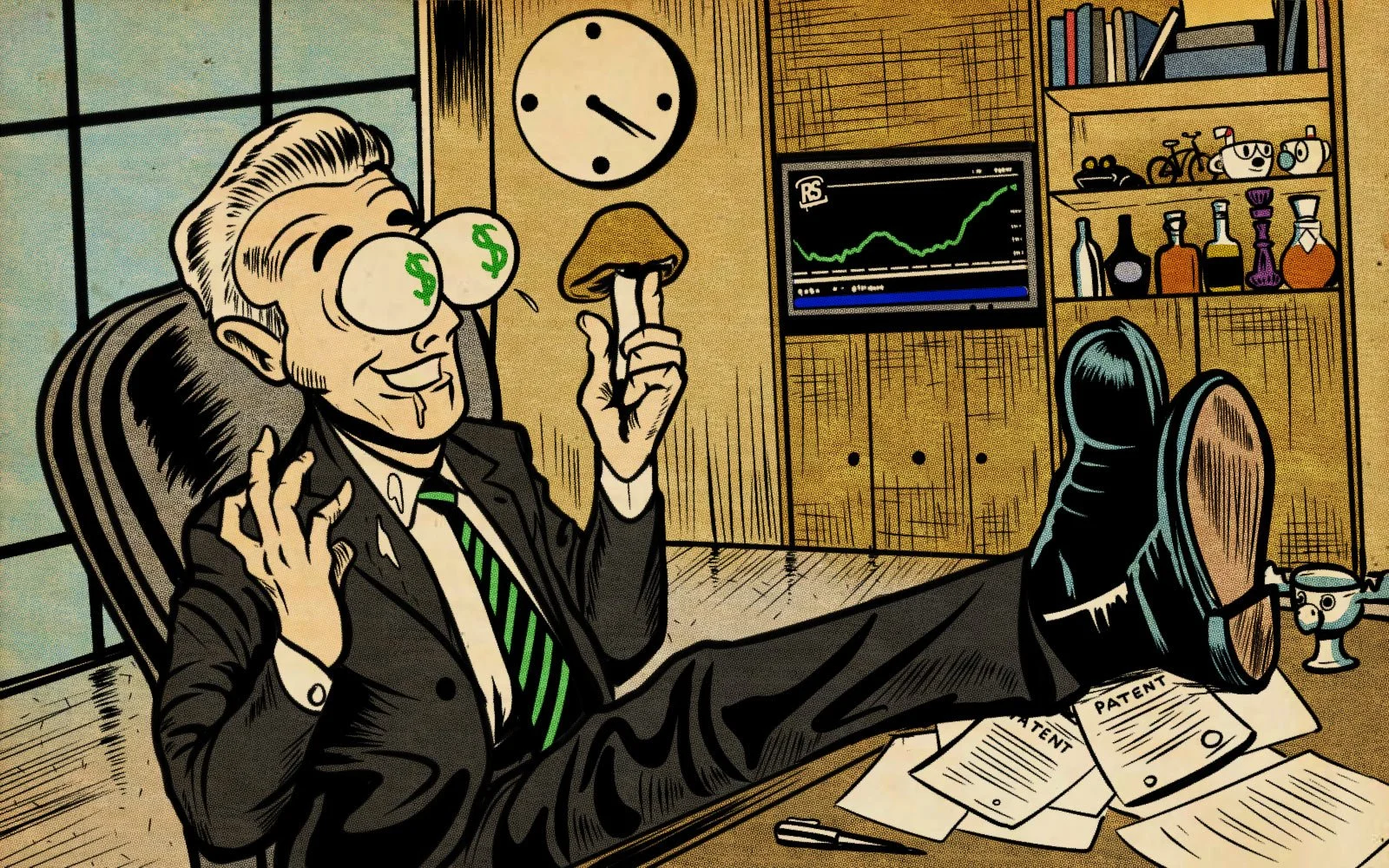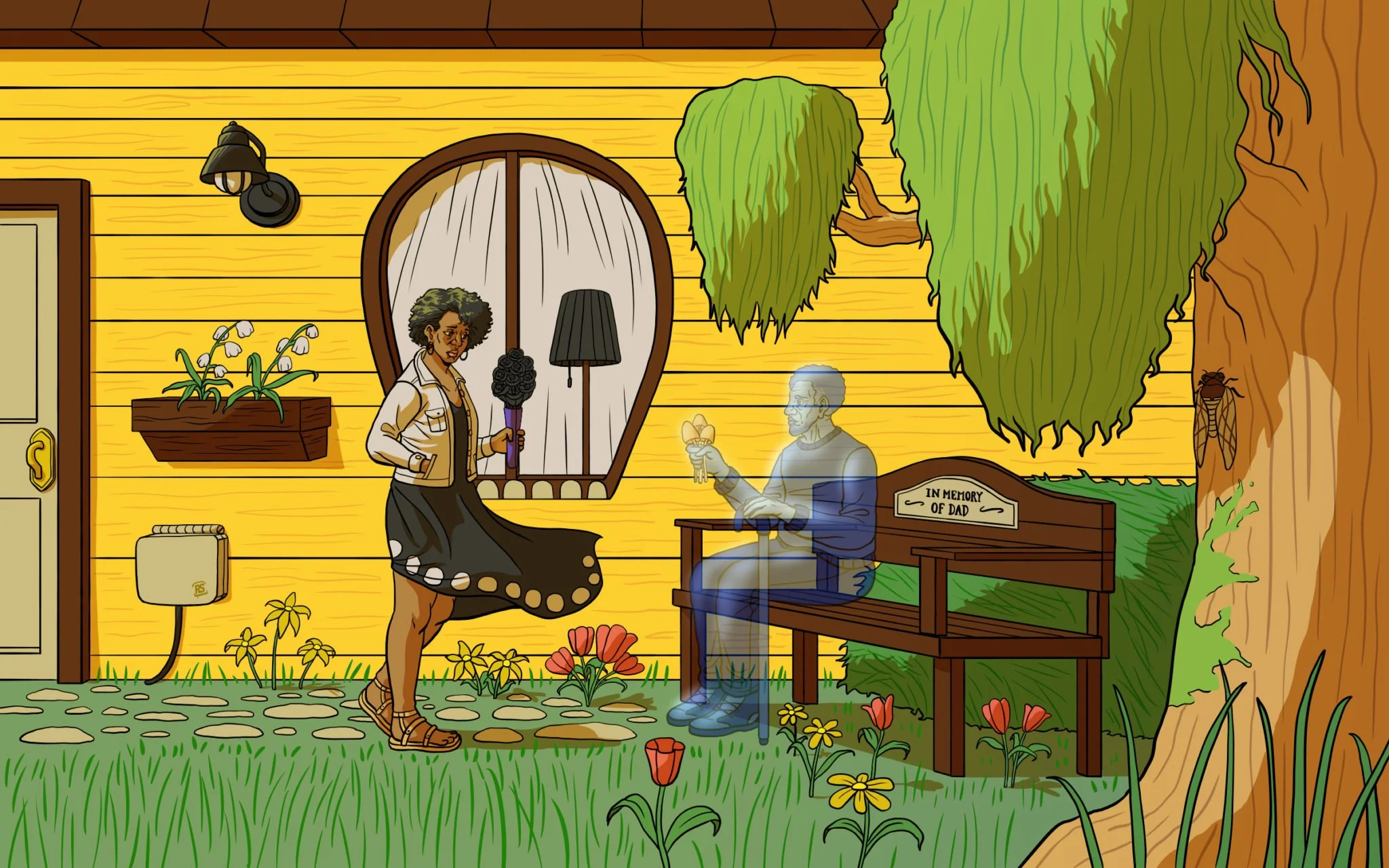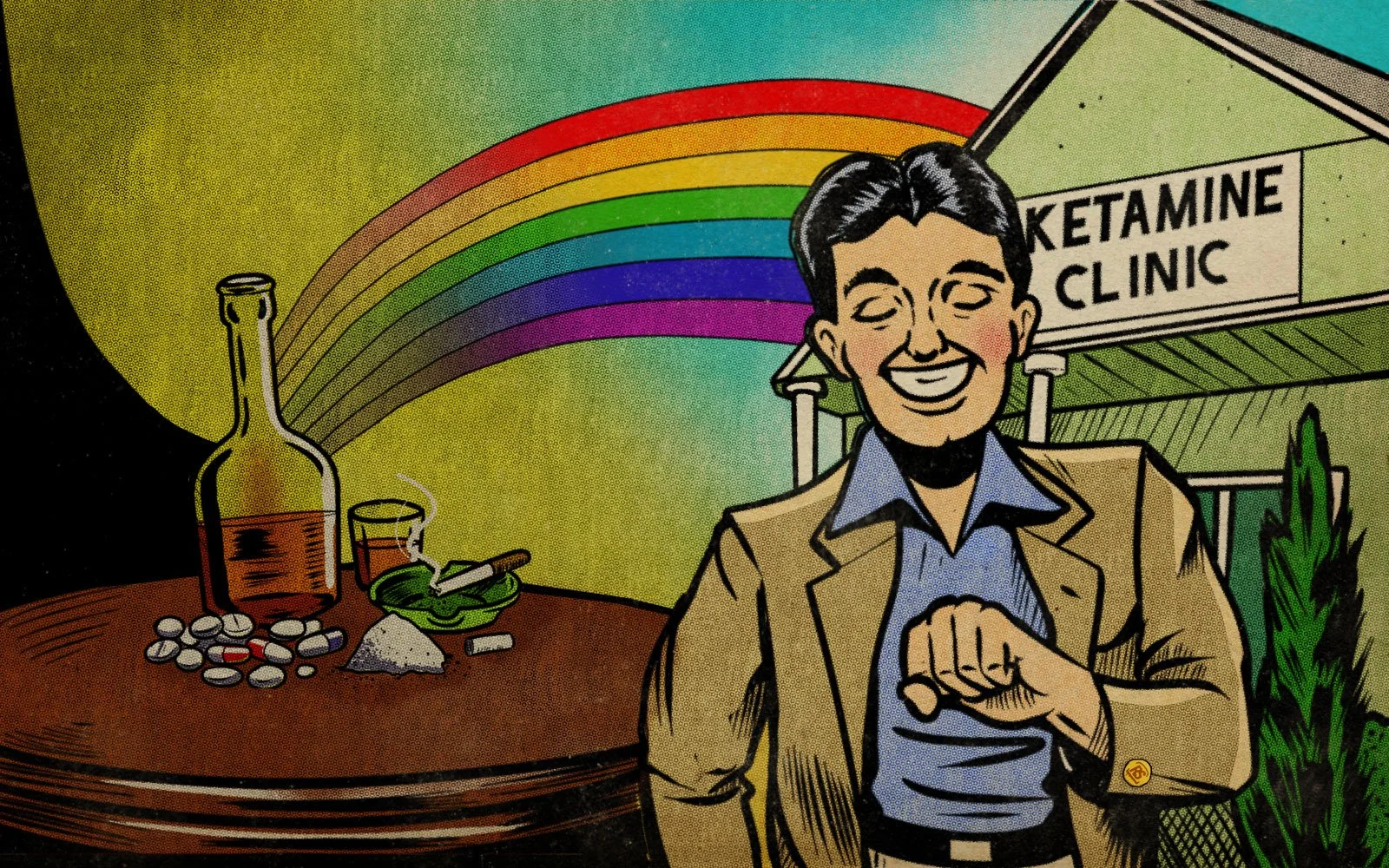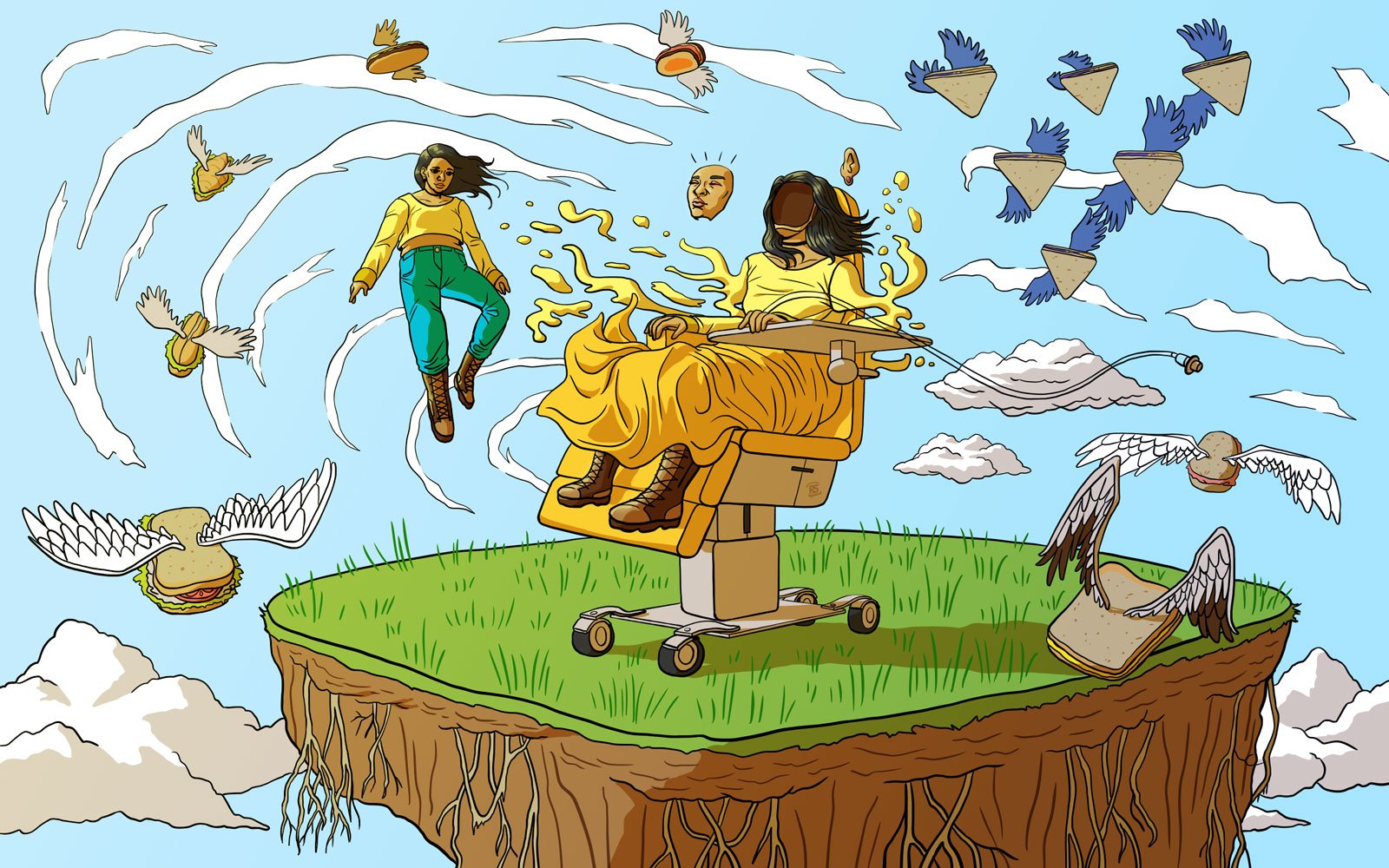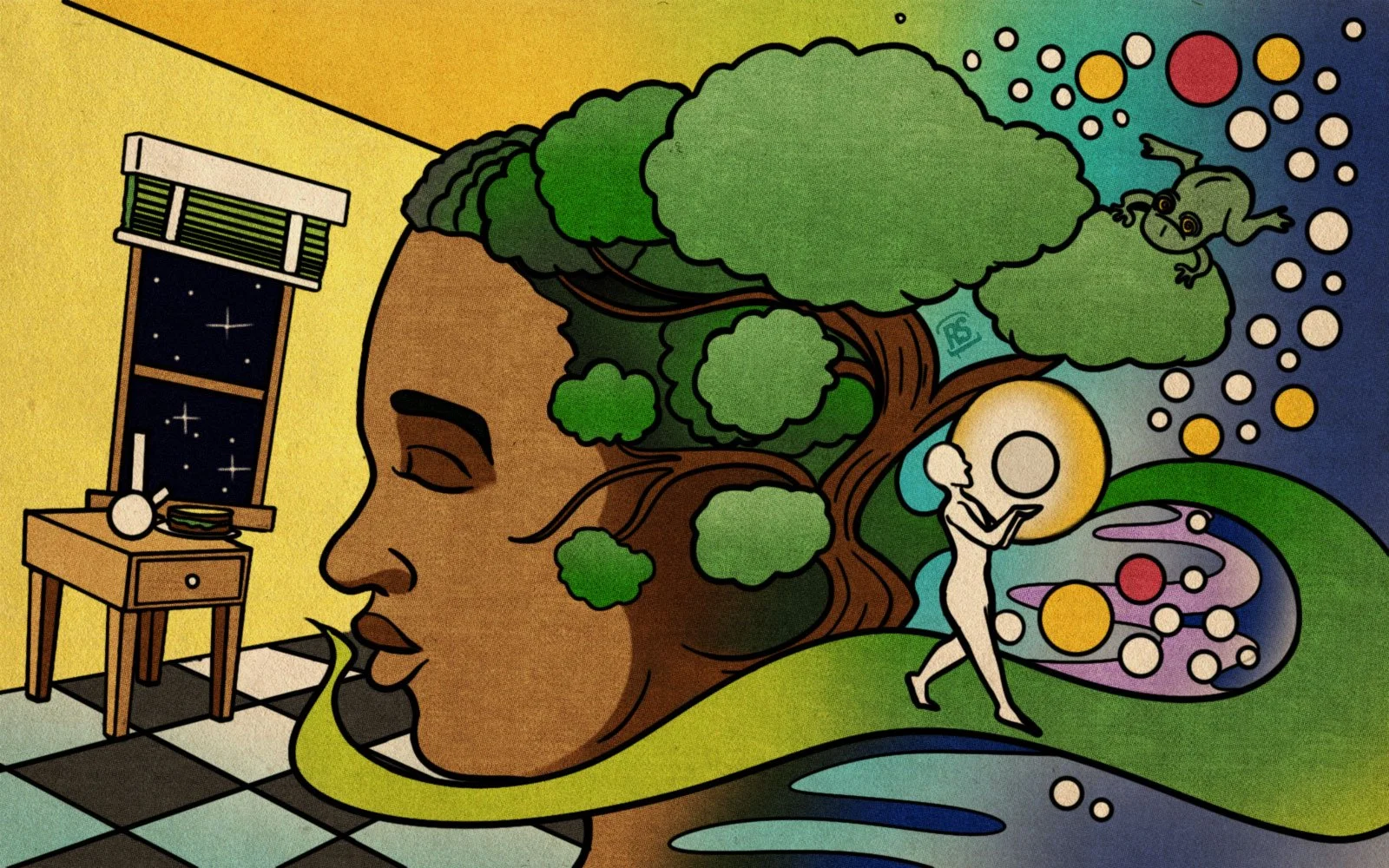Discussions on the nature of reality abound in psychedelic circles. Perhaps this is simply because philosophical people are also attracted to psychedelics. It is possible, however, that taking a psychedelic might actually change one’s beliefs about the nature of reality. A recent study from Imperial College London, published at the end of 2021, investigated this question and found that psychedelic experiences really do produce lasting changes in such beliefs. After a psychedelic experience, participants were found to show reductions in “physicalist” or “materialist” beliefs, and increases in “panpsychic” and “fatalistic” beliefs. In other words, people who have had psychedelic experiences were more prone to believing in a mysterious form of fate and that consciousness is fundamental to the universe—they move away from the scientific narrative of a cold impersonal universe to one filled with purpose and meaning. In the latter picture, our minds are not evolutionary accidents but are instead the force at the center of reality.
Read MoreAyahuasca is a powerful, indigenous plant medicine preparation that contains the psychedelic DMT and several other psychoactive substances. The visions that ayahuasca produces can be astounding and life changing but is there any pattern to these visions or are they just the chaotic hallucinations of a drug-addled brain?
Read MoreSome psychedelic experiences feel sacred and profound while others leave us howling with laughter. Laughter is a common experience on psychedelics, from psilocybin mushrooms to cannabis. Why is this? Why are these mind altering substances capable of tickling us in this way? And is there a link between the profound metaphysical insights that psychedelics can occasion and their giggle-inducing recreational use?
Read MorePsychedelics have the ability to transform people. From curing mental illness to producing changes in people's political views, psychedelics have the potential to dramatically alter the brain and mind. Such experiences can also happen without psychedelics and have been sought after through religious practices for millenia. What happens in the brain when we undergo a transformation of this kind and might we actually be wired for such transformative experiences?
Read MoreA common experience for psychonauts is of feeling as though they have discovered some previously hidden meaning and purpose in the universe. Many who undergo psychedelic experiences come away feeling as if everything happens for a reason, that there is a grand logic underlying existence. This is an idea that philosophy and religions have explored for millenia. Modern science, however, sees the universe differently, as an impersonal machine that is slowly running to a stop. Which of these worldviews is correct and what does it mean for our place in existence?
Read MoreNaturally-occurring psychedelics co-evolved with us. Rather than acting to scramble our brain activity in some chaotic way, psychedelics actually activate a pre-existing pathway in our brain. Psychedelics do this by connecting to the serotonin 2A receptor, also known as the 5HT2A receptor. Why do psychedelics do this and what is this pathway for? Does the DMT found in our brains control this pathway? And might our brain’s psychedelic system be responsible for naturally occurring spiritual experiences?
Read MorePsychedelics are set to revolutionise mental health treatment. In addition to transforming the lives of the individuals who take them, this psychedelic renaissance is forecast to create a multi-billion dollar industry. A psychedelic gold-rush is currently underway, with pharmaceutical start-ups competing for the rights to profit from these ancient medicines. How can someone make money from a naturally occuring substance? Can a company patent psychedelics themselves? There are many important questions that need answers when considering psychedelic intellectual property.
Read MorePsychedelics have the ability to make us feel more connected to the natural world. This effect can be seen not just in the experiences of individual trippers but in the origins of the ecological movement in the 60s. Increased ecological consciousness following psychedelic use is even being found in scientific research today. What is it about these natural substances that allows them to have this effect? Why do psychedelic states lead us to feel an affinity with the natural world? And might a psychedelic awakening be the answer to climate change?
Read MoreWe all know how this ends. We may spend our lives in denial, distracting ourselves from the inevitable but it’s a certainty that, one day, it’ll all be over. We’re not built to accept death, we’re built to fight against it. Sometimes, the struggle can grow to the point where our quality of life is impacted by fear around our own mortality. So, how can we deal with death, and might psychedelics be a useful tool in this challenge?
Read MoreKetamine has been used for decades as a medication for anaesthesia. In recent years it has also been found to be a powerful antidepressant. This has led to research interest in the possibility that ketamine might prove effective in treating other mental health issues, including addiction. Addiction involves compulsively engaging in a behavior in a way that causes harm to your quality of life. Addiction to consuming a substance is known clinically as substance use disorder. Could ketamine also be used to help people struggling with substance addiction?
Read MoreThe world around you becomes unreal, as if in a dream. You no longer feel as if you own your body. You feel detached from the world around you, as if some intervening medium is cutting you off from it. You feel dazed and confused, disjointed and disconnected. You feel as if you leave your body completely and become a disembodied viewer of the scene. This is a typical experience of dissociation. Dissociation, however, can take on multiple forms.
Read MoreMany are changed by psychedelics. Not only do people widely report using such substances for personal development, scientific research has confirmed that a single psychedelic experience can result in lasting personality change [1]. For many, however, altered states are readily dismissed as “crazy drug experiences” that are of no significance to their daily lives. With the renaissance in psychedelic research showing great potential for psychedelics to heal and change people for the better, how can you ensure you get maximum benefit from an entheogenic voyage of self-discovery? Well, there’s more to the use of psychedelics than the trip itself. Considering harm reduction before is crucial in order to ensure things go in the most positive direction during the experience but equally important is the time after the experience. Psychedelic states can produce peak experiences and profound insights, but in order for these to result in transformative change, you’ll need to focus on integration after the experience.
Read MoreDepression can be an almost intolerable burden to live with. While antidepressants help many to soothe its symptoms, many others find no relief in these substances. A decades old drug, ketamine, is now offering hope to many of these people. Ketamine was first discovered in 1962. It was found to be a dissociative anesthetic and was used on the battlefields of the Vietnam war. While it can be used to dull pain at lower doses, at higher doses it can be profoundly hallucinogenic. With the emergence of ketamine as a promising new treatment for depression in recent years, it is now leading the way when it comes to legally available psychedelic therapy.
Read MoreYou’re lost in a kaleidoscopic swirl of brilliant colours and patterns. You lose touch with where your body ends and the world begins. You can no longer form coherent thoughts. Then, suddenly, you give up the struggle. A moment later, you’re gone. All that remains is...everything. Reality doesn’t stop. The sensations, the colours, the patterns, they all continue to unfold, illuminated by the light of consciousness. You disappeared and existence remained. There is no trace of division or suffering, just a perfect, blissful wholeness.
Read MoreOne minute you’re in an ordinary room. The next, you’ve collapsed into a state of pure being. There is no longer any differentiation between what is you and what is not you. There’s just existence, being effortlessly beheld in the light of consciousness. There’s just eternal being and the realisation that that's all there ever was and ever will be. And that’s what you are. There’s the knowledge that what you truly are, this beingness, will survive your individual death. There’s a knowledge of the perfect harmony of existence, an understanding and deep acceptance that it’s all going to go the way it’s going to go. All of your pain, all of your suffering wasn’t what you thought it was--it was all a trivial side-show compared to what is really going on. And what is really going on? This. Existence. Forever. After a seeming eternity your mind begins to reassemble itself and suddenly you’re back in the room. You feel completely back to normal and realise that only 10 minutes have passed. What the hell just happened?
Read MoreYou feel as if you are shot out of your body, down a tunnel and into another realm. You’re greeted by loving DMT entities who welcome you home. This place feels realer than real; you know that this is where you came from and where you will go after you die. After a time, you must return to your body, this beautiful realm recedes and, a short time later, you’re experiencing the “real” world again. Differentiating DMT and near-death experiences can help explain the experience an individual undergoes when using DMT.
Read MoreOne minute, you’re experiencing everyday reality as you have for the majority of your adult life. There’s a world outside you, you live in it, and you know pretty much how it works. You feel pretty grounded. A minute later, you suddenly wake up and realize that everyday reality wasn’t what it seemed. You’re home, in a different dimension spending time with other beings. You remember that this dimension is the real world and that your life on earth was a trivial, temporary distraction, a game you decided to get lost in for a while. After spending a near eternity here, this other dimension gradually comes apart and you find yourself back in the everyday world.
Read MoreDMT (N,N-dimethyltryptamine) is a simple chemical compound, yet it can produce some of the strongest psychedelic effects of any substance on the planet. What’s more, it is found throughout nature–it’s even in your body right now. What is it doing there? Is this abundance of DMT significant, or is it just a meaningless coincidence?
Read MoreN,N-dimethyltryptamine, or DMT, can produce some of the most astounding states of consciousness known to humanity. What’s more, the content of these experiences is far from random–consistent patterns can easily be observed across individuals. When vaporized, DMT can produce visions of parallel alien realities populated with entities. When consumed in the drink ayahuasca, it can produce visions of serpents and contact with what seem like spirit guides. In order to make sense of the effects of DMT on the human brain, we first need to map out these experiences to see what it is we are dealing with.
Read MoreN,N-dimethyltryptamine, or DMT, is one of the most powerful psychedelics on the planet. What’s more, it’s a very simple compound that is found throughout the natural world. Even our bodies produce it. What is it doing inside us? Does the human brain make DMT? And, if so, might this endogenous source of a powerful psychedelic be responsible for religious experiences throughout the ages?
Read More


